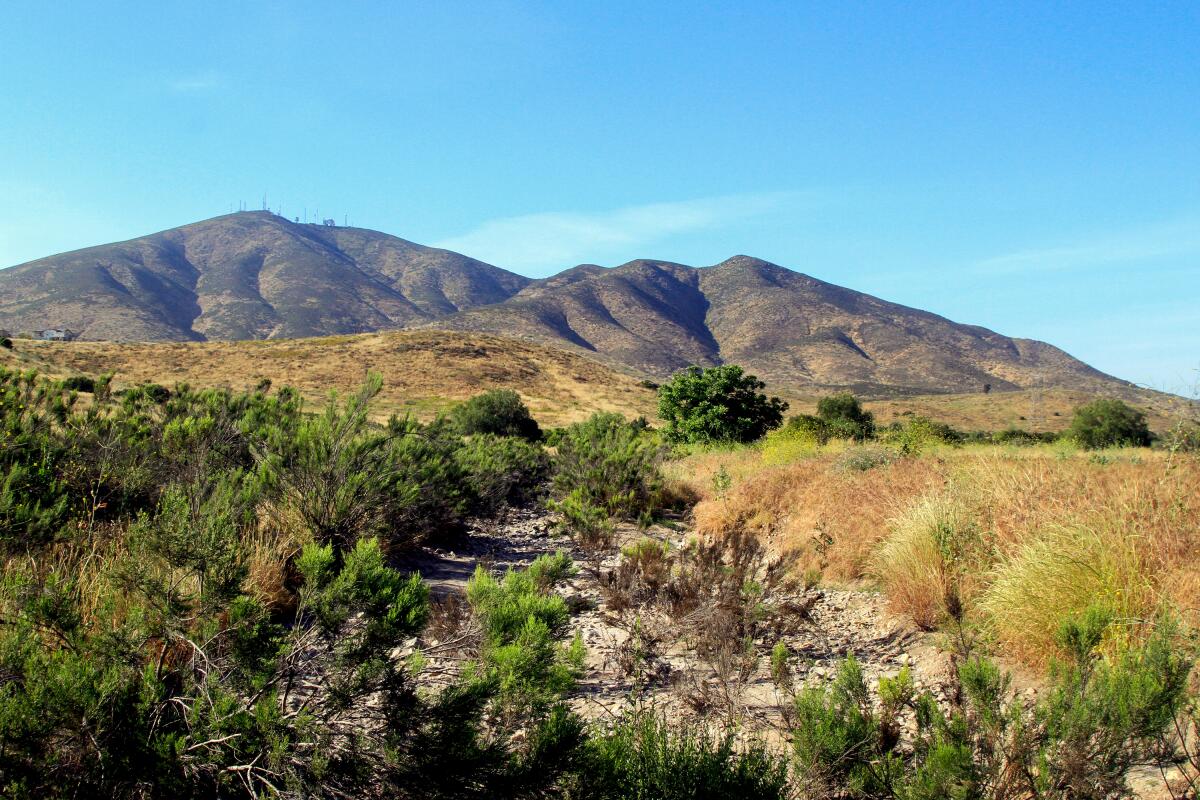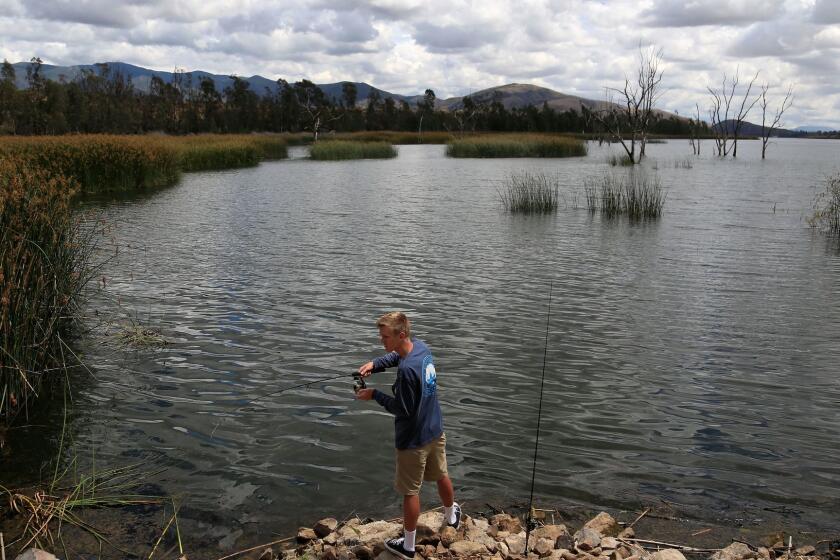Judge strikes down envisioned Otay Ranch housing project, citing wildfire, climate change

California’s attorney general joined environmental groups to oppose rural housing project in San Diego County
The Sierra Club and a host of other environmental groups, backed by the California attorney general, have notched their latest victory against a spate of rural housing developments proposed in high-fire areas of San Diego County.
San Diego Superior Court Judge Richard S. Whitney sided with the groups Thursday, striking down county approval of Adara at Otay Ranch. In his ruling, he cited concerns about everything from greenhouse gases to wildfire to affordable housing.
The Jackson Pendo Development Company planned to build the 1,119-home project east of Chula Vista and south of Jamul on Proctor Valley Road. The envisioned development included upscale housing, commercial storefronts, an elementary school and a new fire station, requiring construction on several unconnected parcels.
The legal challenge is the latest in a string of such lawsuits to block housing on undeveloped land
The development company could not be reached for comment by press time.
The county Board of Supervisors approved the project in 2019 with the support of local fire officials. Cal Fire San Diego Unit Chief Tony Mecham assured the board at the time that the project was safe despite being located in an area that’s seen repeated blazes, including seven since 2003.
Specifically, Whitney found that the county’s environmental impact report did not properly disclose or analyze numerous impacts of building new homes on the chaparral-covered countryside, including the destruction of habitat for the endangered Quino checkerspot butterfly.
The judge also found that the county’s plan to allow developers to purchase so-called carbon credits to avoid restrictions on greenhouse gases was troublesome because the county had not devised a proper framework for oversight. The finding echoes a state appellate court opinion that invalidated the county’s Climate Action Plan in 2020.
“This court decision confirms that local government has to actually ensure that projects reduce their climate impacts, not merely rely on faulty offset schemes that plainly violate environmental law,” said Josh Chatten-Brown, the lawyer representing the Sierra Club.
The environmental groups — which also include the Center for Biological Diversity, Endangered Habitat League and California Chaparral Institute — have successfully challenged several other housing projects on similar grounds. Those have included Newland Sierra, Valiano and Harmony Grove Village South.
“We can’t keep approving projects in remote locations, in wildlands, in high-fire risk areas that have high greenhouse gas emissions,” said Dan Silver, chief executive of the Endangered Habitats League. “We’re in another world now.”
The California attorney general joined the lawsuit earlier this year, echoing environmental and safety concerns and noting that the developments don’t set aside any units for affordable housing.
“California is on track for yet another record-breaking, climate-fueled wildfire season,” Atty. Gen. Rob Bonta said in a statement late Thursday. “As these mega-disasters become the norm, it is more critical than ever that we build responsibly. We can’t keep making the same mistakes. The land use decisions we make now will have consequences for years and decades to come.”













